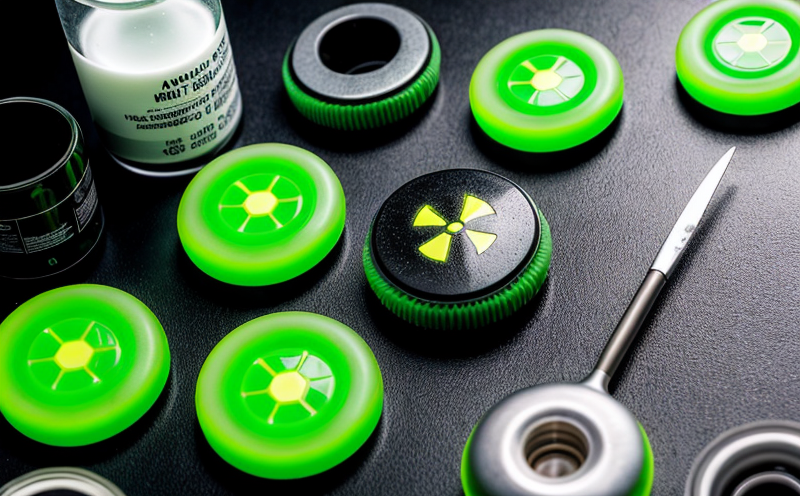EN 19762 Uranium and Thorium Testing in Herbal Teas
Introduction to EN 19762: The European Standard EN 19762 specifies the procedure for determining the content of uranium (U) and thorium (Th) in herbal teas. This testing is crucial for ensuring product safety, compliance with regulatory standards, and maintaining consumer trust. Regulatory bodies such as the EFSA recommend this type of analysis to prevent contamination from radioactive elements that could pose risks to human health.
Testing Context: In recent years, there has been a growing awareness about the potential presence of uranium and thorium in herbal teas. These elements can enter tea leaves through various means, including soil contamination, water sources, or even during processing if not adequately controlled. The standard provides a robust framework for laboratories to quantify these contaminants accurately.
Significance: Accurate measurement of uranium and thorium is essential in the food & feed sector to protect public health. Excessive levels of these elements can lead to severe health issues, including kidney damage, bone disorders, and increased risk of cancer. Compliance with this standard helps manufacturers maintain high-quality products that meet or exceed international safety standards.
Testing Procedures: The testing process outlined in EN 19762 involves several key steps:
- Sampling: Representative samples are taken from the batch of tea to ensure variability is accounted for.
- Preliminary Treatment: Samples undergo digestion using strong acids like nitric acid to convert uranium and thorium into soluble forms suitable for analysis.
- Instrumentation: Inductively Coupled Plasma Mass Spectrometry (ICP-MS) instruments are used due to their precision and sensitivity. This method allows for the detection of extremely low levels of contaminants.
- Data Analysis: Raw data from ICP-MS is analyzed using statistical software to calculate concentrations, ensuring results align with EN 19762 requirements.
Acceptance Criteria: According to EN 19762, the acceptable limits for uranium and thorium in herbal teas are set at:
| Element | Limit (µg/kg) |
|---|---|
| Uranium | <50 µg/kg |
| Thorium | <20 µg/kg |
Real-World Implications: Ensuring compliance with this standard is particularly important for companies involved in the production and export of herbal teas. Non-compliance can result in product recalls, damage to brand reputation, and potential legal action. Moreover, adherence to these standards enhances consumer confidence and fosters trust between manufacturers and their customers.
Conclusion: By implementing EN 19762 testing protocols, food & feed producers can safeguard public health while meeting stringent regulatory requirements. This standard plays a vital role in maintaining the integrity of the global food supply chain and promoting responsible manufacturing practices.
Scope and Methodology
Sampling: Samples are taken from different parts of the batch to ensure variability is accounted for. The sampling process must be representative, reflecting the entire batch's characteristics accurately.
| Sample Preparation | Description |
|---|---|
| Preliminary Digestion | Tea samples are digested using nitric acid to convert uranium and thorium into soluble forms suitable for analysis. |
| Final Dissolution | The digested tea is further dissolved in a mixture of hydrofluoric acid (HF) and perchloric acid (HClO₄). |
Instrumentation: Inductively Coupled Plasma Mass Spectrometry (ICP-MS) instruments are used due to their precision, sensitivity, and ability to detect trace levels of elements.
Data Analysis: Raw data from ICP-MS is analyzed using statistical software. This includes calculation of concentrations, comparison with acceptance criteria, and generation of comprehensive reports.
Industry Applications
- Herbal Teas Manufacturers: Ensuring product safety by detecting uranium and thorium levels below regulatory limits.
- Exporters: Meeting international standards for safe products to maintain market access.
- R&D Engineers: Developing new formulations with lower contaminant levels.
- Quality Managers: Implementing robust quality control measures during production processes.
Importance: The ability to accurately measure uranium and thorium content is critical for maintaining product integrity, ensuring compliance with regulatory requirements, and protecting public health. This testing ensures that products meet or exceed the stringent limits set by EN 19762, thereby reducing risks associated with radioactive contamination.
Environmental and Sustainability Contributions
Reduction of Contaminant Risks: By adhering to EN 19762 standards, manufacturers significantly reduce the risk of contaminating the environment. This includes preventing the spread of radioactive materials that could harm ecosystems.
Consumer Trust and Safety: Ensuring product safety builds consumer trust, which is crucial for long-term business success. Safe products contribute to public health and well-being.
Sustainable Practices: Compliance with this standard supports sustainable manufacturing practices by ensuring that all steps in the production process are conducted safely and effectively.





